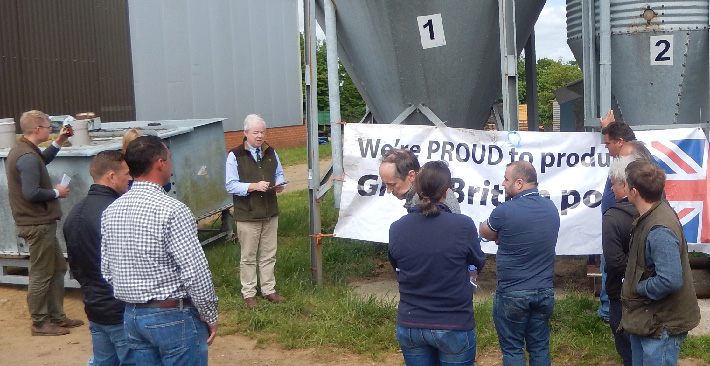By the middle of the week buyers suddenly seem to have woken up to the fact that there weren’t quite as many pigs about as they thought and a “black hole” in pig supplies is getting bigger due to the rising number of ASF outbreaks which have now occurred in 13 Asian countries as well as closer to home and has finally started to filter through to the UK, but not before time.
Although the SPP only put on a miserly .17p, many are still wondering why it went down the week before when all the other pointers were indicating a rise was on the cards.
European pig prices have generally stayed at similar levels on the week, with the influential German producer price standing on at €1.85, equivalent to 163p in our money.
Better demand has also been translated into increased bids for spot pigs which were generally traded in the 155-160p range and which is a pleasant change from their value a few months or so ago.
Weekly contribution prices have in some cases nudged up a penny, which should also help the SPP to add value in the weeks ahead with most now in the 145-151p range and the monthly contribution prices have also moved up by a larger proportion.
A fall in the value of the euro which traded today worth 88p compared with 89.1p a week ago due to a stronger pound has put sow prices under a certain amount of pressure and these dropped by 2p in most cases, with most now worth between 107-112p.
Weaner prices have also started to improve reflecting a return to confidence as far as pig finishers are concerned, with the latest AHDB 30kg average up by 79p to £52.67/head and 7kg weaners also improving in value by £1.43 to £40.78/head.
A few phones have started ringing with weaner buyers wondering what might be available which can only help to improve values across the board, although a shortage of finishing space remains a major issue.
Feed prices have remained at similar levels which gives a better margin to producers, with the latest UK ex farm spot feed wheat average quoted at £125.70/t compared with £167.80/t a year ago.
Spot feed barley looks even better value at £112.70/t compared with a whopping £164.30/t 12 months earlier.
Futures prices are also little changed, with UK wheat quoted for October 2019 at £136/t and for September 2020 at £145/. October 2019 barley was traded at £123/t and September 2020 at £135/t/.
Proteins have drifted easier with Hipro soya meal November-April 2020 at £297/t and for May-October 2020 at £301/t.
And finally, the benefit of cheaper feed is now being seen in UK production results in the second quarter of 2019, where according to the AHDB the average cost of production stood at 148p/kg which is 9p below the previous quarter and another 2p lower than the same time a year ago.




